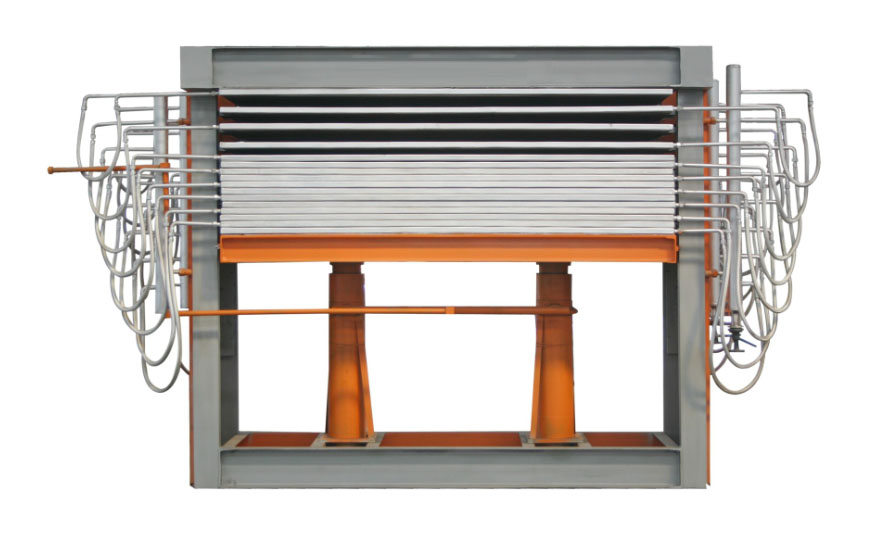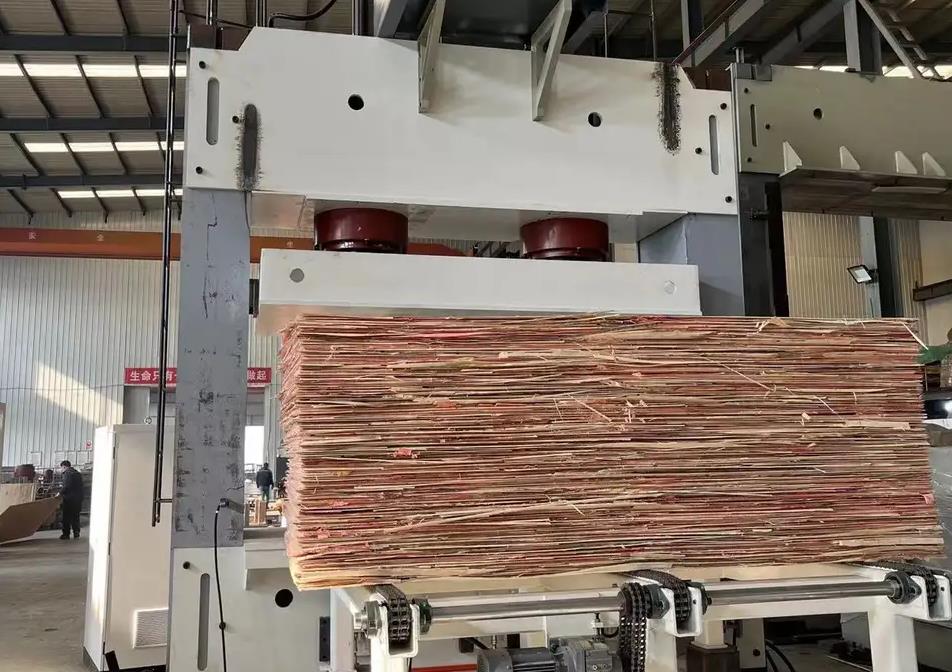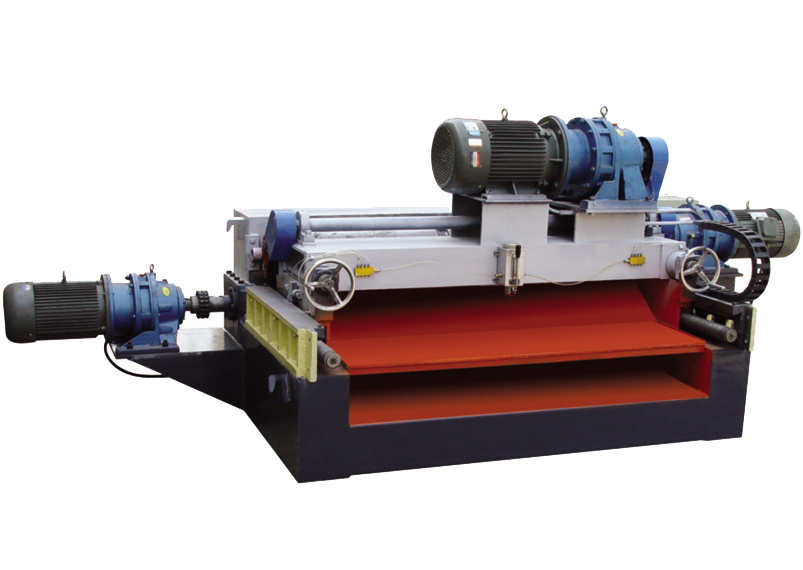The cardless veneer rotary cutting machine is the main equipment in the field of wood processing, and its precise adjustment of rotary cutting thickness plays a decisive role in the quality of the finished product. Reasonably adjusting the thickness of rotary cutting can not only improve the utilization rate of wood, but also ensure the stability of veneer quality. The following are the specific adjustment steps:

Parameter preset: Input the target thickness value through the operation panel, and the equipment control system will automatically calculate and adjust the knife door clearance based on the input data. This step requires fine-tuning based on parameters such as wood material and moisture content to ensure that the numerical settings are scientifically reasonable.
Mechanical calibration: Loosen the fixing bolts of the tool holder, use a vernier caliper to measure the vertical distance between the blade and the pressure roller, and adjust the millimeter level accuracy by rotating the adjusting nut. It is recommended to use a "progressive" adjustment method, with each fine adjustment of 0.1mm followed by a trial run to observe changes in the thickness of the veneer.
Dynamic monitoring: During formal rotary cutting, real-time feedback data is provided using the thickness detection device that comes with the equipment. If the actual thickness deviates from the set value by more than 0.05mm, the machine should be stopped immediately to check for abnormal conditions such as blade wear and wood deformation.
Mastering scientific adjustment methods, combined with regular maintenance, can significantly improve the processing accuracy of cardless veneer rotary cutting machines and create higher economic benefits for enterprises.
 What Are Hot Press Veneer Dryin
What Are Hot Press Veneer Dryin
01 January,1970
 Advantages of CNC cardless rota
Advantages of CNC cardless rota
01 January,1970
 How to adjust the cutting thick
How to adjust the cutting thick
01 January,1970
 What Are the Advantages of Mesh
What Are the Advantages of Mesh
01 January,1970
 What is plywood cold press?
What is plywood cold press?
01 January,1970
 Use process of rotary cutting m
Use process of rotary cutting m
01 January,1970